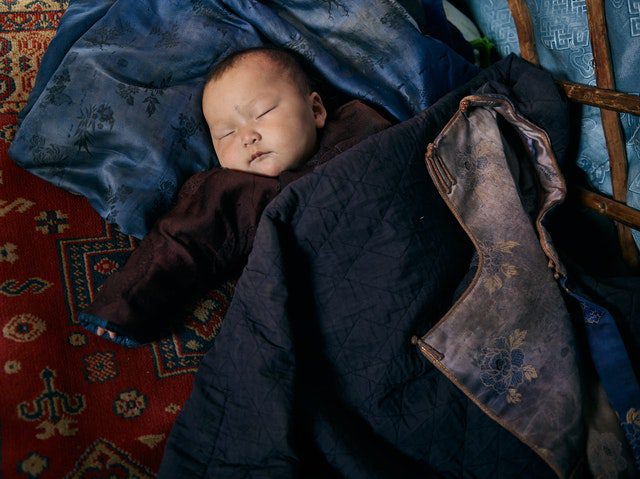Did you know about 15% of all deaths of children under five years old are caused by pneumonia? These are the World Health Organization figures. So what is it? Pneumonia is an infectious disease of the lungs. More children die of pneumonia globally than any other disease. But the good thing is that pneumonia is preventable and treatable with vaccines and proper care. Read on to know how you can save your loved ones from this acute respiratory infection.
What Happens When You Have Pneumonia?
Our lungs are made up of tiny air sacs that are filled with air when we breathe. When we get infected with pneumonia, fluid or pus is accumulated in these air sacs and there is then no place left for air to occupy the sacs. As you can imagine, the symptoms are then cough with phlegm or pus, fever, chills and difficulty breathing, which exhausts the patient.
Either of the two lungs may get affected by pneumonia. The severity of the disease varies depending upon the total area involved; it can be a mild case or sometimes even life-threatening. Some other factors also dictate the nature or severity of the disease; these include age, the type of the germ causing pneumonia and the patient’s overall health status.
What Causes Pneumonia Exactly?
Several types of infectious agents can cause pneumonia. These include bacteria, fungi and viruses. A bacterial infection is the most prevalent cause of pneumonia.
Bacteria such as Streptococcus pneumoniae, Mycoplasma pneumoniae and Chlamydia pneumoniae causes pneumonia. The COVID-19 pandemic is also an acute respiratory infection of the lungs caused by the coronavirus. There are also several types of fungi that causes pneumonia. These include Histoplasmosis and Cryptococcus. Pneumonia from fungal infection usually occurs in people with a compromised immune system and chronic disease states. There are also some bacteria-like organisms called Mycoplasma that may cause pneumonia. The condition is not severe enough to require bed rest and prompt recovery is the usual outcome.
Signs And Symptoms Of Pneumonia
The condition exhibits respiratory signs and symptoms because it affects the lungs. Here are some:
- fever and chills
- mucus-filled cough
- chest pain during coughing and breathing
- fatigue and tiredness
- sweating
- nausea and vomiting
- shortness of breath
- diarrhea
- loss of appetite
- severe headaches
- adults aged over 65 years might observe a decrease in their average body temperature
These symptoms vary with your age level and infants might not show any signs. Infants only have a fever and cough or they might vomit or have difficulty breathing.
Who Is At Risk Of Contracting Pneumonia?
In older adults with a weaker immune system however, they might exhibit life-threatening symptoms. They may experience an overall loss in body temperature. The older cohort might even experience changes in mental awareness. People who smoke regularly are more prone to acquiring pneumonia infections. The severity of the disease is also high in such individuals. Patients with Chronic Obstructive Pulmonary Disease (COPD) or heart ailment are also at increased risk of acquiring pneumonia. Patients in Intensive Care Units (ICU) for long-standing disease conditions, post-chemotherapy cases and patients who received organ-transplant stand more chances of contracting the infection. Certain medications also increase the risk for example, extended use of steroid treatment.
Why Are Babies At More Risk?
Pneumonia affects all age groups, but the young and old are at higher risk. Babies are especially at higher. There are several reasons and conditions for this:
- heart or lung disorders present
- prematurely birthed
- A weak immune system (babies born to HIV-positive mothers)
babies born to passive smoking
Once an infant contracts pneumonia, they are generally more restless and can have difficulty breathing. They also have irregular eating patterns when infected. Fever, cough and vomiting may become apparent later. Since pneumonia’s classical signs and symptoms are absent in infants, the disease is often overlooked if a careful diagnosis is not made. A vigilant diagnosis is a must.
Complications Of Pneumonia
Though pneumonia is treatable, yet it is considered a dangerous disease because of the associated complications. Here are some of them:
– Bacteria in the bloodstream – sometimes bacteria from the lungs enter the bloodstream and can affect other organs. This might lead to organ failure
– Breathing issues – in the case of severe pneumonia or underlying lung diseases, patients might face difficulty in breathing. A ventilator can help, so it is important to go to a hospital in this case
Prevention
- Vaccination – There is a vaccine available for pneumonia (PPC and PPSV). Getting vaccinated can especially help children and the elderly since they are more prone to acquiring the infection
- Good hygiene – Keeping good hygiene goes a long way when it comes to prevention of the infection. Washing your hands regularly and hygienic respiratory practices help
- Quit smoking – Smoking leads to several respiratory diseases. Quitting smoking reduces your risk of getting infected with the disease
Treatment Options
Treatment includes curing the infection and reducing the complications. Here are some treatment options:
- Antibiotics – A doctor can recommend antibiotics after diagnosing the type of bacteria involved
- Cough medicine – This medicine will help soothe the cough and allow for better rest
- Pain reliever – Pain relievers can be used to reduce chest and other types of pain. These include aspirin and ibuprofen etc.
Pneumonia can be a life-threatening condition depending on the severity of the infection. Babies and elders are at a higher risk of catching this infection. Therefore, if you have pneumonia, please seek guidance from medical experts or get yourself hospitalized to avoid further complications.








